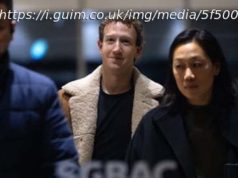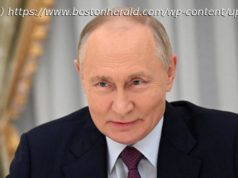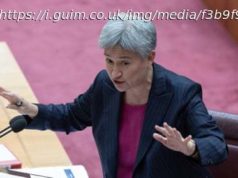BEIJING– Xi Jinping appears to again be back in Donald Trump’s good graces.
BEIJING– Xi Jinping appears to again be back in Donald Trump’s good graces.
Last week, it looked as if the leaders of the world’s biggest economies were on a collision course. North Korea’s second intercontinental ballistic missile test in a matter of weeks prompted Trump to lash out at China on Twitter, and a few days later came reports that his administration was getting ready to take steps that could lead to a trade war.
That all changed with a breakthrough at the United Nations Saturday. After a month of talks, the U. S. and China agreed on sanctions that would cut North Korea’s exports by a third, punish some of its biggest companies and cap the number of its citizens working in other countries at current levels.
„It’s enough to give the administration some new hope that it can work with China on North Korea and trade, “ said Dennis Wilder, former senior director for Asia at the National Security Council in the George W. Bush administration. The move would „almost certainly“ stop the U. S. from imposing secondary sanctions on China, and may delay a planned investigation into intellectual property theft, he said.
Still, while Chinese Foreign Minister Wang Yi expressed confidence Sunday that the sanctions would bring Kim Jong Un back to negotiations, many North Korea watchers are skeptical that he’ll give up his quest for an ICBM that could hit the U. S. with a nuclear weapon. China will still provide Kim’s regime with food and fuel, and North Korea’s nuclear weapons program is already in an advanced stage.
„The new sanctions alone are probably insufficient to alter North Korean behavior, “ said Wilder, who was a Chinese military analyst at the CIA. „But if Beijing quietly imposes more unilateral sanctions, such as on fuel shipments to North Korea, the North Koreans would be forced to reconsider further ICBM testing.“
Far from going above and beyond, China – North Korea’s main ally and trading partner – has been regularly accused of not fully implementing previous U. N. resolutions. After North Korea’s second ICBM test July 27, the U. S. called China and Russia „economic enablers“ of Kim’s regime.
China has sought to cool tensions on the Korean Peninsula, particularly as Trump administration officials warn that war is possible to stop Kim from acquiring the ability to hit the U. S. mainland with a nuclear weapon. China sees the collapse of Kim’s regime as more of a strategic threat that could lead to a refugee crisis and U. S. troops on its border.
The measures agreed to unanimously on Saturday are aimed at cutting North Korean exports by about $1 billion a year by blocking sales of coal, iron, lead and seafood. Joint ventures would be prevented from expanding their operations.
While it’s significant, the numbers are also minuscule compared with Iran, whose oil exports were curbed and tens of billions of dollars were frozen in overseas bank accounts. North Korea’s much-smaller gross national produce grew last year at the fastest pace in 17 years, which may help offset some of the blow.
China made it clear that the goal of the sanctions was to push North Korea toward negotiations, In a meeting on Sunday in Manila, Philippines, where diplomats from more than 20 countries met, Wang urged North Korean Foreign Minister Ri Yong-ho to react calmly to the sanctions and avoid more provocations.
China has repeatedly proposed that North Korea halt further nuclear and missile tests in return for the U. S. and its allies suspending military exercises in the region – a so-called freeze-for-freeze. The U. S. rejects this, saying that Kim must be prepared to give up his nuclear weapons entirely – a prospect that many analysts view as unlikely since Kim sees them as essential to his survival.
During his campaign last year, Trump regularly blamed China for stealing American manufacturing jobs. After his first meeting with Xi in April, Trump said they had „great chemistry.“ In June, he said Xi had failed to rein in Kim’s regime. Weeks later he said they had an „excellent“ meeting in Germany. And then on July 30 he accused China of doing „NOTHING“ on North Korea.
„
Sign up today for a free 30 day free trial of unlimited digital access.






